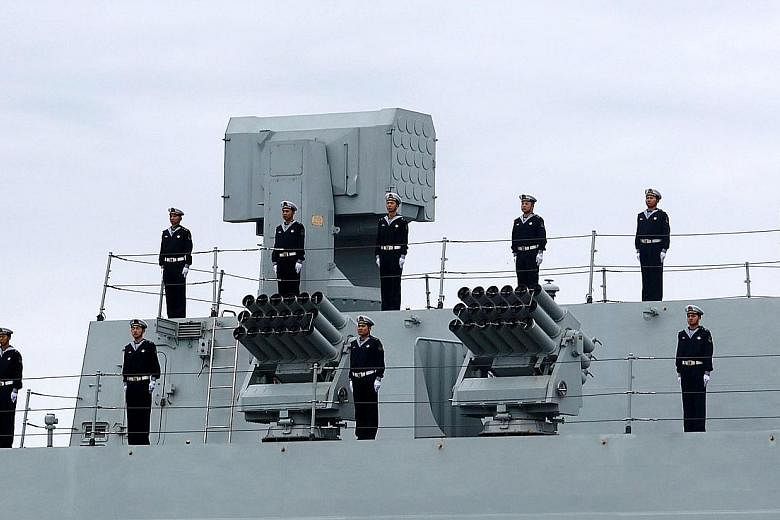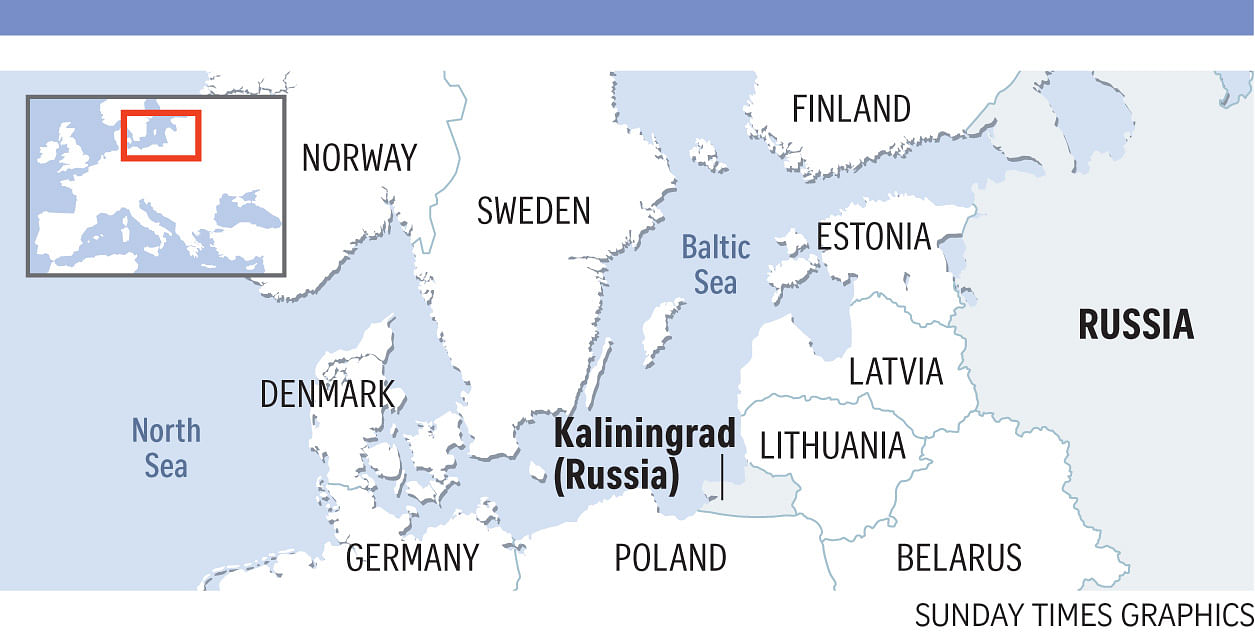BEIJING • China and Russia have kicked off joint naval exercises in the Baltic Sea, the Chinese and Russian media reported, and Beijing has sent some of its most advanced warships to the military drills.
It is the first joint operation by the two regional giants in European waters, according to a report on the official website of the People's Liberation Army (PLA).
China said the week-long drills would be the first for the Type 052D guided missile destroyer Hefei, which was commissioned less than two years ago. It is being joined by a missile frigate, a supply ship and about 10 Russian ships. Training will include anti-submarine warfare and air defence drills, the Russian Ministry of Defence said.
CNN, quoting analysts, reported on Friday that the choice of the Baltic Sea is significant and that "the area remains a source of heightened tension between Russia and the US and its North Atlantic Treaty Organisation (Nato) allies - China's arrival in the waters signals its intention to be considered equal to those powers".
But a Beijing-based military expert dismissed those concerns on Friday in comments to the Global Times, a tabloid linked to the Chinese Communist Party.
"It is normal for China to conduct joint exercises with friendly countries since it needs to protect its overseas interests and shoulder the responsibilities to safeguard regional and world peace. Some countries should get used to the situation," said Mr Song Zhongping, who used to serve in the Second Artillery Corps of the PLA, now the PLA Rocket Force.
Some Nato countries consider the Baltic Sea as their sphere of influence and hold a Cold War mentality towards other countries' presence in the region, Mr Song said, adding that China has no intention to interfere in the disputes in the region. The purpose of the drills is for the Chinese navy to "conduct training in unfamiliar waters", he added.
Nato allies have been keeping a close watch on the Chinese fleet.
British, Dutch and Danish warships had at various times escorted the Chinese flotilla as it made its way to the drills through the English Channel and across the North Sea.
The joint exercises were an annual event and not aimed at any third party, the Global Times quoted PLA Navy Vice-Admiral Tian Zhong as saying during the opening ceremony at Russia's major Baltic Fleet base in the western seaport town of Baltiysk on Friday.
Deputy director Magnus Nordenman, of the Brent Scowcroft Centre on International Security at the Atlantic Council, said China's increasing role in world trade means it would want to be able to protect access to ports in northern Europe, CNN reported.
A fortnight ago, Beijing sent ships with troops to formally open a military base in Djibouti, on the Horn of Africa. China's first overseas military base will provide a critical role in supporting Chinese warships in the Indian Ocean and on more far-flung voyages.
"One of China's goals to develop its naval forces is to protect the overseas interests, especially under the Belt and Road initiative, and other countries should not make a fuss about it," the Global Times quoted Mr Song as saying.
Separately, a Chinese spy ship was detected off Australian northeastern coast near joint war games underway between the United States, New Zealand and Australian militaries, the Australian Defence Force (ADF) said yesterday.
The intelligence vessel was operating in the Coral Sea during the Talisman Sabre war games, the ADF said in a statement, Reuters reported.
The ship remained outside Australian territorial waters.


